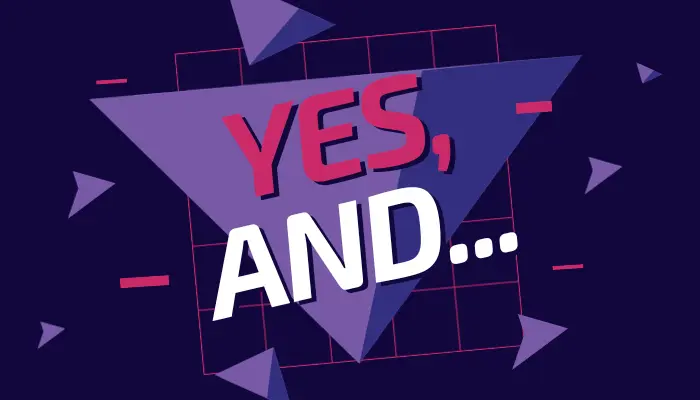Would you like to be able to read your prospect’s mind?
If you are new to sales, or even if you’ve been in sales for some time, have you ever wondered what is your prospect thinking?
In this post, we’re going to talk about how you can figure out exactly what your prospect is thinking with sales discovery questions. Let’s get into it.
(0:44)
When it comes to selling, you want to use language in a way that influences others. So you want to use language that draws out what your prospects are thinking.
The most obvious is to ask questions.
3 Power Sales Discovery Questions to Discover What Your Prospect Is Thinking
 Now, this isn’t about an interrogation.
Now, this isn’t about an interrogation.
But, you want to make sure you’re always asking strategic discovery questions along the sales journey (aka your sales process) so that you know exactly where you stand with your prospect and what they’re thinking.
In the early part of a conversation, maybe it’s during your first meeting, you might ask them this discovery question,
1. “Why did you agree to meet with me today?”
That question is going to unlock or uncover exactly what they’re thinking about, and why they think you or your product or service might be able to help them. And it allows you to determine how you can best communicate along the way.
(1:33)
When you finish that first or maybe second meeting and you’re about to move to a quote or proposal, you want to ask this discovery question:
2. “Before we move to the next step, is there anything else I haven’t answered for you today that you’d like me to address?”
You see this question again gets the prospect to tell you where they’re at, what they’re thinking.
Last but not least, once you’ve provided a proposal and you’ve met to discuss and review it. (You are meeting to discuss and review your proposals with your prospects, right?) Once you do that, you want to make sure you ask this discovery question before you go for the close.
3. “Is there anything in this proposal that’s missing? Is there anything in this proposal or quote that you wanted to see that you just haven’t seen thus far?”
You see, this question again, gets the prospect to tell us
- where they’re at,
- what they’re thinking, and
- what we need to do to move them forward.
So make sure you use those three power questions in your conversations to help unlock and uncover exactly what your prospect is thinking.
Best Strategic Discovery Questions and Phrases to Insert Into Your Sales Process

Ask “What Else?” Before Moving Forward
One of the most powerful sales discovery questions you can use to make sure that you keep your sales process moving along and keep your prospects moving along within it is to ask,
“What else?”
You see, when it comes to getting inside the mind of our prospect, we want to ask questions to figure out what they’re thinking, what’s important to them, and ensure we’re on the right track.
But along the way, we want to make sure we’re asking “What else?” before we move to the next step.
Because sometimes what can happen in sales is we get ahead of ourselves, we rush to the finish.
Look, let me be honest. If you can close the deal quickly, all the power to you. You should always be trying to close, but not at the risk of
- tarnishing the relationship,
- hurting or diminishing trust, or
- losing the opportunity to sell.
And let’s be honest, today’s prospects are highly educated. They likely talk to more than one of your competitors. And if you’re being pushy, they’ll sense it. So if they’re telling you, let’s go quickly, move quickly. But if they’re not, you want to ensure you include this phrase when you’re moving from stage to stage in your process.
So, you simply ask,
“Is there anything else we haven’t discussed here that you’d like to make sure we cover?”
- You can do that at the end or near the end of your first meeting.
- You can do that at the end of a presentation.
- You can do that just before you provide that proposal.
- You can do that after you issued the proposal and you reviewed it with them.
- You can ask that same question right before you say, would you like to proceed? Is now the time, is today the day? Let’s move this forward.
Those are all forms of closes, by the way. You can simply ask that transitional phrase, “Is there anything else we haven’t discussed here that you wanted to make sure we discussed?”
Most importantly, when it comes to reading the mind of your prospect, there’s a little bit of psychology that goes on.
Respond to Questions with “Yes, and…” to Discover Prospect Motives

(4:24)
Let’s be honest. You can’t get into the mind of your prospect.
You can ask them questions as we’ve talked about, and you can constantly flush out where they’re at mentally, what they’re thinking by using that transitional phrase we talked about.
But something else you want to make sure you’re doing is moving them along your sales process. Otherwise, what’s the point, right?
So, what you can do throughout your sales process is use the phrase,
“Yes, and…”
- If they say, this looks fantastic, does this also come in green? You say “Yes, and…”
- This looks great. Do you have good financing rates? “Yes, and…”
Now you might be wondering, well, what’s the “and” for Sean? The “and” is moving your prospect to the next step.
(5:01)
Let’s go back to that financing example. If somebody’s asking you about financing, clearly they’re trying to calculate in their mind if they can make this work.
So, if you were to ask me, “Are there great financing rates available? I’d say “Yes, and not only can we finance them over lengthy terms, we can also do shorter terms if you prefer. There are lots of different options. Which option were you considering?”
So, “and” allows me to open up what they’ve just said, right? To get behind what they’re thinking.
So if they ask for financing, I’m thinking, well,
- Is it a payment issue?
- Is it a budget issue?
- Is it a timing issue?
I don’t know. It could be any number of issues as to why they’re asking that question.
So I want to say “yes”. I want to say, “Absolutely we can help you. Absolutely, yes!”
However, I want to understand what’s behind that. What is their objection, hold-up, delay, question, or concern that I want to uncover? So by saying “yes, and…”, I transition my response into a question, which in turn gets them to open up.
And guess what? You are reading their minds!
Vet Prospect’s Concerns by Wrapping Up With a Phrase That Builds Trust
 (6:00)
(6:00)
Last tip for you, when it comes to reading the mind of your prospect.
I bet you when you started this video, you didn’t even know you could read the mind of your prospect. But here’s the thing.
When it comes to that last conversation, that last meeting, this is the meeting that you know that, okay, typically this is before you send a quarter proposal and there’s a risk that they may get it and there’s not something they’re pleased with.
And of course, you’ve asked your questions, you’ve used your “yes, and” so you should be good at this point, but you don’t want to leave them without saying this phrase:
“I’m looking forward to the chance to support you in this important endeavor.”
That’s it. Now, if you want to change that up a bit and say:
- “I’m looking forward to working with you and your team on this very important initiative.”
- “I’m looking forward to supporting you with this new product on this very important production line.”
- “We’re looking forward to providing you with this much-needed insurance to protect your team.”
I’ve given you some different examples depending on what you sell.
The key is this:
If you want to get in the mind of your prospect, if you want to understand what they’re thinking, you notice it’s all about asking questions, getting answers, and making adjustments, and responding.
The goal of all of this is to build trust, because if somebody trusts you, then they’re not going to question you, right? They’re not going to have any concerns about you.
So, we want to leave them with a phrase that demonstrates trust. And that phrase is exactly what I mentioned.
- “I’m looking forward to working with you on this important initiative.”
- “We’re looking forward to providing this new piece of equipment to help your team be safe, be more productive” (Or go faster, slow down, whatever the case might be.)
We’re reaffirming the value of what we can offer, and most importantly, we’re telling them we’re looking forward to this.
Now, let me ask you if I said that to you. There’s just a tinge of guilt. If you in your mind, are thinking in that moment, “I dunno if I’m going to go ahead.”
I’ve had people say, hold on a second, Sean, we’re not so sure we’re going to move forward. To which I say, oh, okay, sorry. I might’ve misunderstood.
Fall back on your “What else?” discovery question examples and ask:
“What was it during a conversation that we may have missed or I didn’t explain clearly or maybe I didn’t address at all?”
(8:10)
You see if you use that phrase, it will tend to draw your prospect to share with you if they’re not intending to move forward, which allows you to read their mind!
Add Mind-Reading Discovery Questions to Your Sales Process

So, I encourage you to use these sales strategies, tips, and discovery question examples to help you sell more, close more, and ultimately get inside the mind of your prospect.
I hope you’ve enjoyed this. Another one of my videos on how to sell more with me, Shawn Casemore.
If you like this content, if you like this video, make sure you click “Like” to let me know you want to see more content like this on my YouTube channel. You can always comment below with what strategies you use to read the mind of your prospect, and of course, subscribe if you’d like to be notified each and every time we release a new video.
Until next time, let’s get out there and go sell something. We’ll talk to you soon.
© Shawn Casemore 2025. All Rights Reserved.


Share This Article
Choose Your Platform: Facebook Twitter Google Plus Linkedin